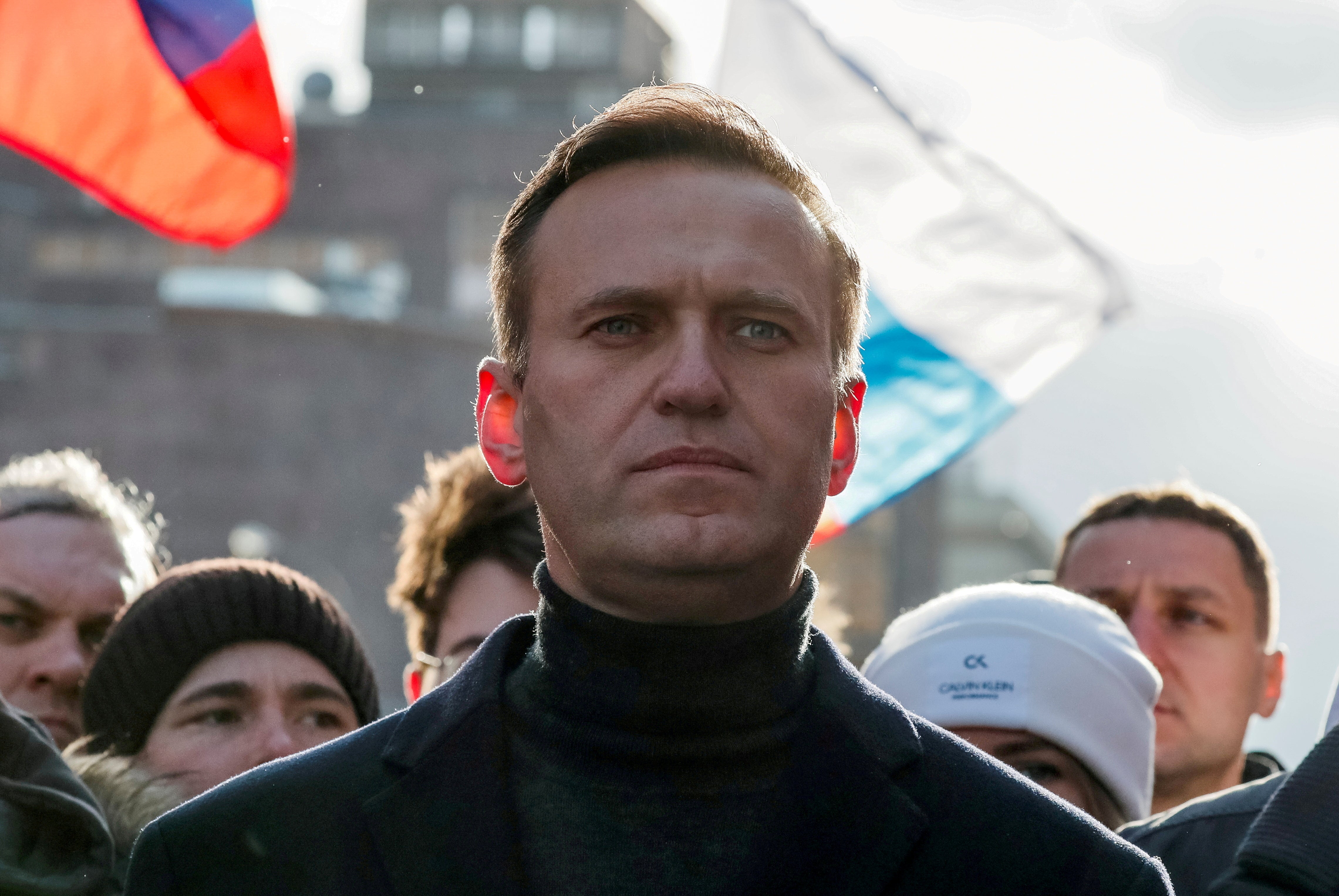Seven Russians sanctioned by UK over Alexei Navalny poisoning
The Kremlin’s foremost critic victim of suspected attack using nerve agent novichok

Your support helps us to tell the story
From reproductive rights to climate change to Big Tech, The Independent is on the ground when the story is developing. Whether it's investigating the financials of Elon Musk's pro-Trump PAC or producing our latest documentary, 'The A Word', which shines a light on the American women fighting for reproductive rights, we know how important it is to parse out the facts from the messaging.
At such a critical moment in US history, we need reporters on the ground. Your donation allows us to keep sending journalists to speak to both sides of the story.
The Independent is trusted by Americans across the entire political spectrum. And unlike many other quality news outlets, we choose not to lock Americans out of our reporting and analysis with paywalls. We believe quality journalism should be available to everyone, paid for by those who can afford it.
Your support makes all the difference.Seven Russians have been sanctioned by the UK following the poisoning of Alexei Navalny.
The Kremlin’s foremost domestic critic fell ill on a flight to Moscow last year and was subsequently found to have been poisoned with what experts concluded was the nerve agent novichok.
Mr Navalny, 45, was arrested on 17 January after returning from Germany, where he spent months recovering from the attack. He is in prison in Russia on charges of embezzlement.
The Foreign, Commonwealth & Development Office announced on Friday that seven individuals, said to be members of the Russian Federal Security Service, would be subject to travel bans and asset freezes. Government officials believe those sanctioned were “directly responsible” for planning or carrying out the attack on Mr Navalny on 20 August last year.
Foreign secretary Dominic Raab said: “Since the horrific poisoning of Alexei Navalny took place a year ago, the UK has been at the forefront of the international response against this appalling act.
“Through our chemical weapons sanctions regime and at the Organisation for the Prohibition of Chemical Weapons, we are sending a clear message that any use of chemical weapons by the Russian state violates international law and a transparent criminal investigation must be held. We urge Russia to declare its full stock of novichok nerve agents.”
Mr Navalny, a consistent thorn in the side of president Vladimir Putin, blames the Kremlin for targeting him with novichok – the same nerve agent used in the Salisbury poisonings in 2018, for which the Russian intelligence services have also been blamed.
The anti-corruption investigator has millions of Russian followers on social media and frequently attends protests against Mr Putin’s government, though he has been unable to challenge the president at the ballot box.
Earlier on Friday, Mr Navalny marked the anniversary of the novichok attack by urging global leaders to devote more attention to combating corruption and to target tycoons close to Mr Putin.
The UK and US also issued a joint statement in which they reaffirmed their condemnation of the “assassination attempt” on Mr Navalny.
The statement added: “We welcome sanctions actions made by international partners and will continue to co-ordinate with international partners on further measures.
“Today the UK and the US join in taking further action against the individuals directly responsible for carrying out the poisoning of Mr Navalny.
“As we did after Russia’s use of a chemical weapon against the Skripals in the United Kingdom in March 2018, we continue to underline that there must be accountability and no impunity for those that use chemical weapons.”
Join our commenting forum
Join thought-provoking conversations, follow other Independent readers and see their replies
Comments